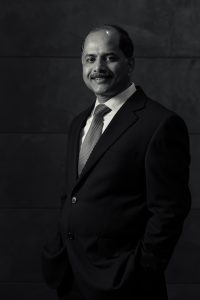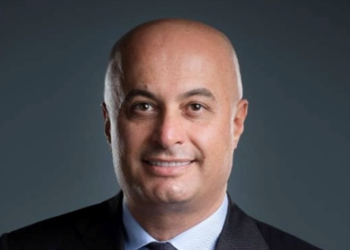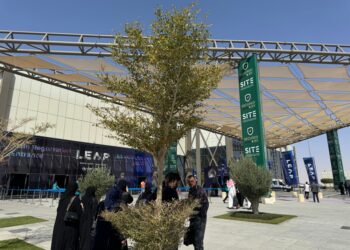What does digital transformation mean to you?
We are a family-owned conglomerate involved in multiple lines of businesses. These range from real estate and retail to automotive, logistics, and transportation. Digital transformation can be different for different business units. Rather than define it individually for each business unit, we see digital transformation as nothing but business transformation – future-proofing the business and taking it to the next level.
In this game, you need the whole C-suite to be with you. You need the support and engagement of your CEO, CFO, CHRO, board members, line-of-business managers, and partners to manage the execution of the digital transformation.
Our IT organisation works hand in hand with the business units, right from strategy formation to execution to delivery. We use the Balanced Scorecard to align company activities with strategies and monitor the progress. Once scorecards and strategy maps are defined for each business unit, we work with almost 21 business units as IT; we participate in their strategy review meetings to understand their business ambitions and then we advise them on the kind of IT projects we can take up to support these goals.
How does one transform IT from a cost centre into a true business enabler?
I don’t like IT to be termed as a cost centre. Especially, when most of the business enablement happens through technology-driven models, IT must be at the forefront. In fact, all our initiatives are focused on two aspects that I prefer to describe as the numerator and the denominator respectively.
First, on the numerator side, we focus on how to accelerate revenue growth, how to improve margins, how to acquire more customers and retain existing ones. We always promote those initiatives within the group.
Second, on the denominator side, the focus is on optimising the cost of operations, managing resources in a better manner, and improving internal efficiencies.
Instead of being a cost centre-oriented IT organisation, we are more into enabling the business through the improvement of customer satisfaction, customer acquisition, and retention, and optimising cost. I believe that is the true definition of business enablement.
You are actively taking on business strategy responsibilities, and at the same time, you have to keep the lights on. How do you balance both roles?
It swings based on seasons and need of the hour. We have to keep the lights on, and at the same time, continuously work towards identifying new growth opportunities, innovation and making sure our business is ahead of the competition.
We always have two modes of IT working within the same organisation. One camp is continuously building new capabilities and innovation, and the other one maintains a stable environment once it is productionalised. Gartner coined this as bimodal IT, and I am a big fan of this concept of balancing the need to innovate with maintaining legacy systems to keep the business running.
Even the business has to be bimodal to drive digital transformation. If you don’t have that mindset, you will always be viewed as a run-and-maintain organisation.
Which are the new technologies you are exploring?
We are exploring the whole array of new digital technologies such as cloud, chatbots, blockchain, Data Science and mobile. We have been on the cloud journey since 2011, and in fact, we were one of the early adopters of Oracle talent management system in the region.
Now we run almost 20 plus cloud services from ten different countries, which means our IT infrastructure is distributed across many geographies, and there is no perimeter.
In fact, we have all three different flavours of the cloud. We use Oracle ERP, which has gone live in a hybrid cloud environment. Our production runs on-prem while test and development and DR are on the cloud. This gives us almost two-three times more speed and good resiliency in terms of infrastructure.
Our objective is to become completely server-less by 2022. Our infrastructure is moving 100 percent to the cloud, and our software adoption policy is cloud-first and mobile-first. We also adopt quite a lot of specialised best-of-breed applications.
One of the advantages of the cloud is that it allows you to move in different velocities. For example, your sales and marketing need continuous innovation, and new technologies are emerging daily. Your HR probably needs a change every two-three years and finance every five to ten years. With one single monolithic ERP, you can’t drive innovation that meets the different needs of business units.
Therefore, we decided to slowly decouple from a single ERP to best-of-breed cloud solutions while also ensuring that we integrate well because it’s a very important aspect of the cloud journey.
Do you see any use cases of AI and ML with AWR?
It was all noise in the past, but it is becoming a reality now. The UAE is one of the first countries in the world to set up a ministry dedicated to Artificial Intelligence, and we have aligned ourselves to the national vision for AI. We have started a separate department in IT called decision technologies to make sure that we use analytics, data science, AI and ML to improve our internal processes and enrich customer experience.
However, due to our fast cloud adoption, data fragmentation was an issue. In order to address this challenge, we have created an application neutral data landscape to which we bring in data from all different cloud applications for analysis and machine learning. Blockchain also has some interesting use cases for some of our business sectors, and we already have some proof-of-concepts underway.
What is your greatest career achievement?
I am motivated to succeed by the core values of AWR – passion, integrity, commitment, adding value and never being satisfied. Anything is possible when you are dedicated to upholding these values. Personally, I don’t believe in milestones. I am passionate about coming to AWR every day and exploring new things to improve our business. More than that, what I really value is my team. During my long tenure here, I have been able to set up and maintain a very focused and committed team and I feel proud about that achievement.










Discussion about this post